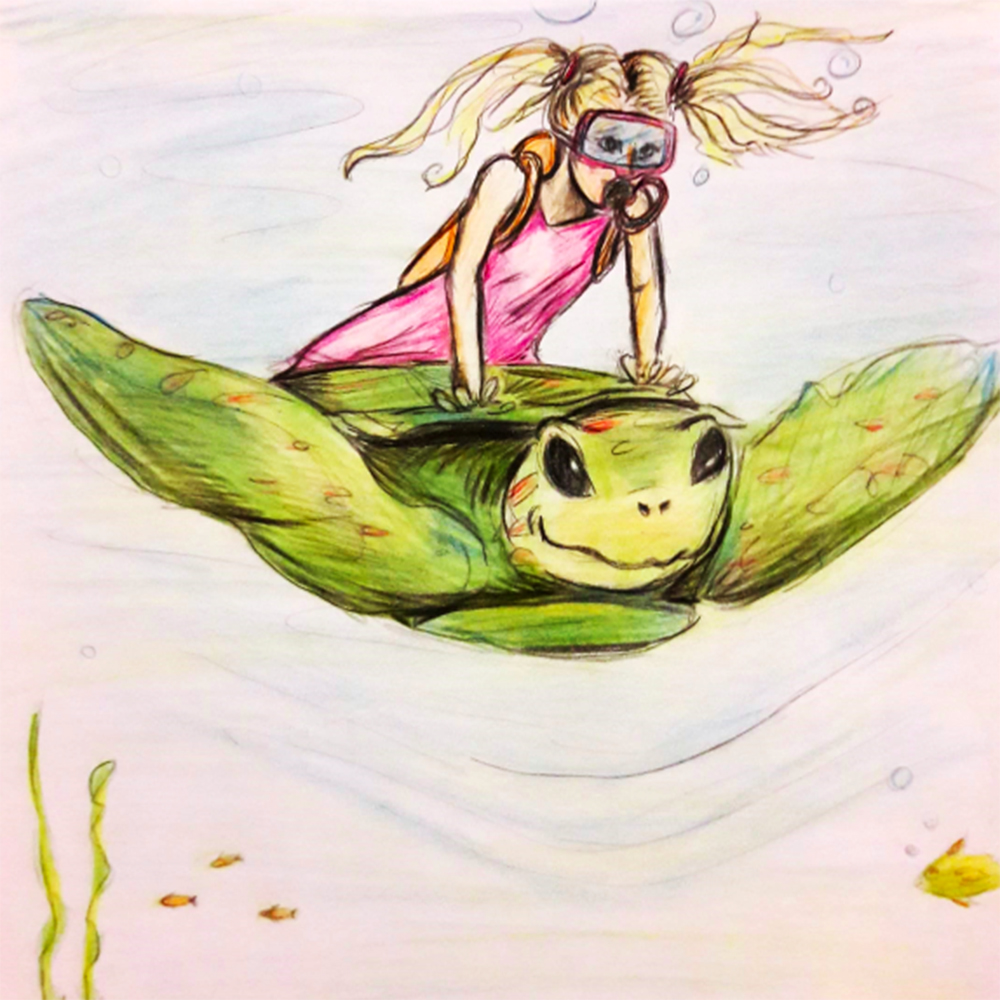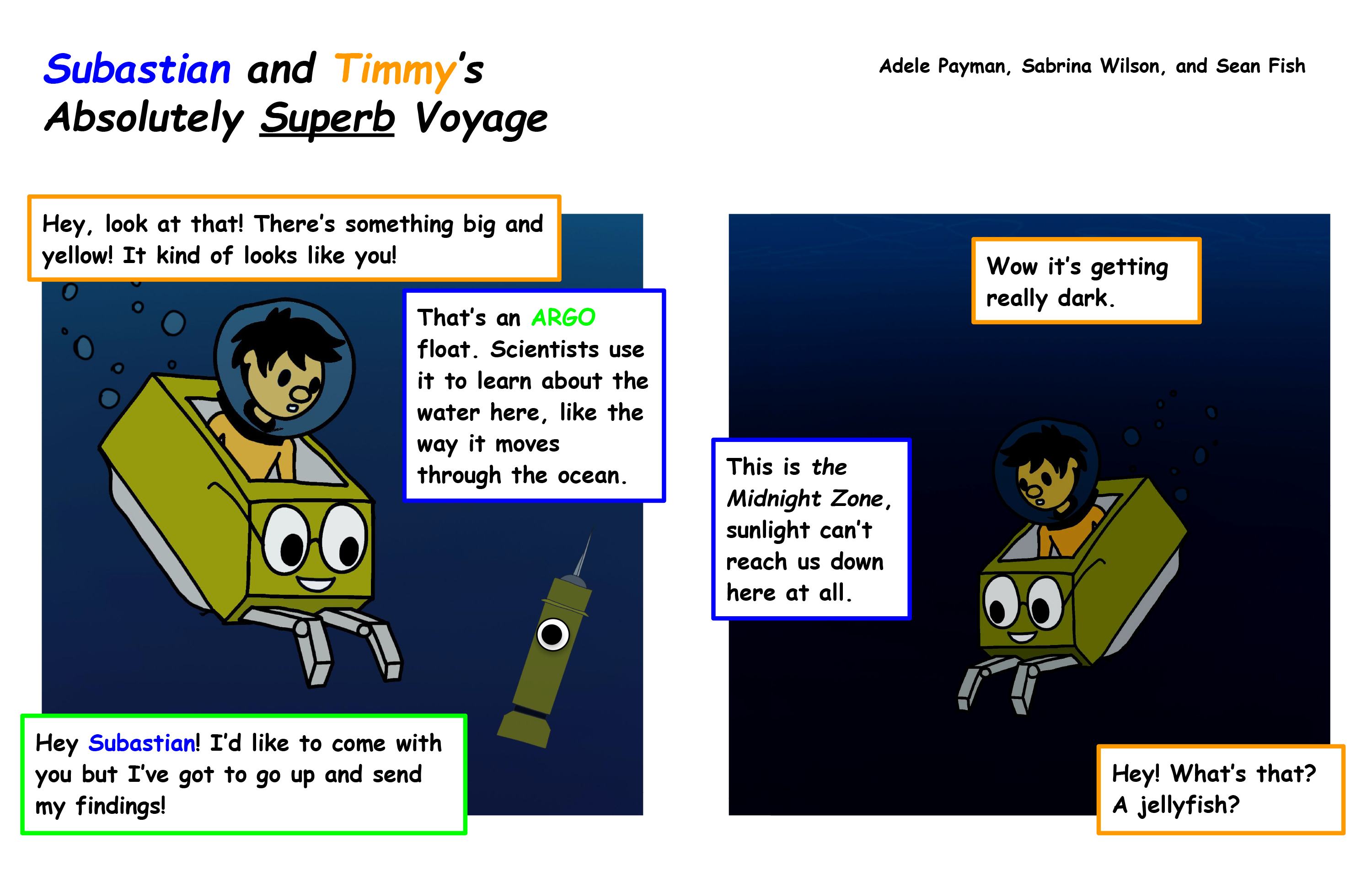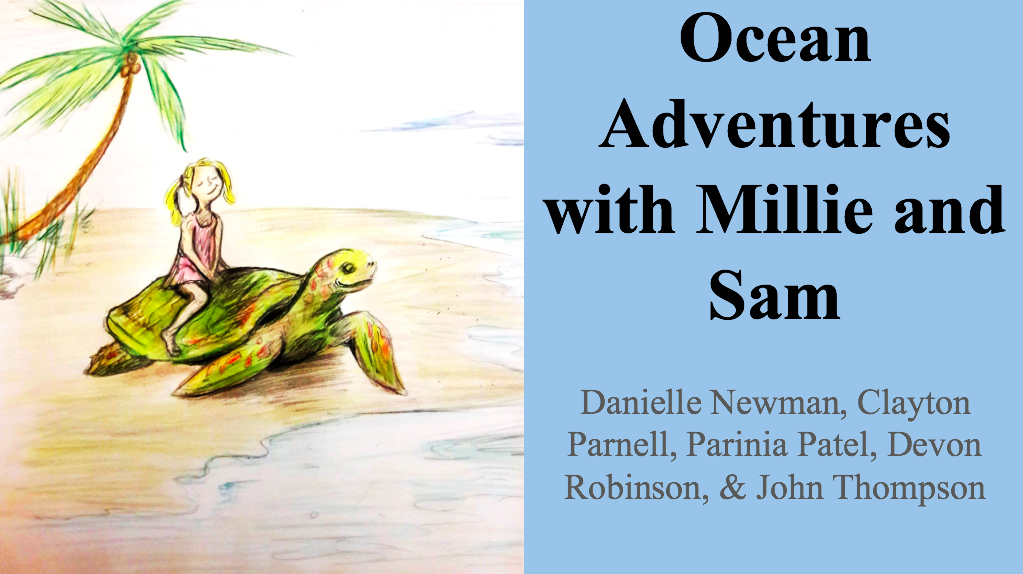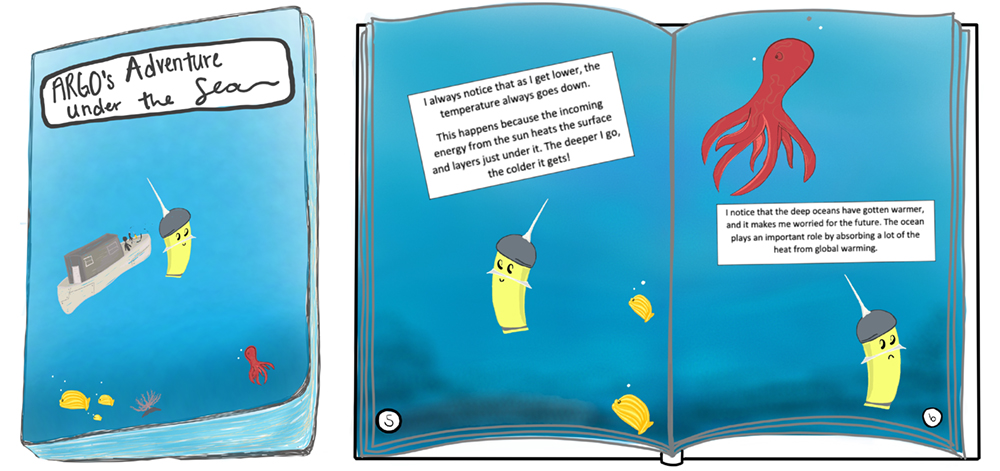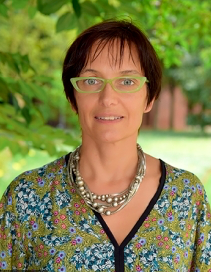It was a visit to a first grade class that prompted Annalisa Bracco to unleash the creative and storytelling talents of her Georgia Tech undergraduate students.
“For a whole semester, those first graders were learning about the ocean, and I was finding out that they were not going to learn much about anything happening below the upper 200 meters of the water column,” says Bracco, a professor of oceanography and climate dynamics in the School of Earth and Atmospheric Sciences (EAS).
That experience got her looking for a project that would provide some fun for her EAS 4801: The Deep Ocean class. This was her second year to teach the class and this round, most of those in the 5-12 week “mini-mester” class were first-year students.
Bracco’s solution was to ask her students to bring an aspect of the deep ocean and its exploration to life via a children’s story.
“The goal is to tell a compelling story to the reader where the message is clear, and the narrative is easy to follow,” Bracco says. “There are no set topics for this assignment, but students have to be mindful that this type of product may serve as one of the few times that K-8 students are exposed to deep ocean-related topics, so they should carefully consider the message they wish to send.”
In other words, avoid jargon, make the story user-friendly, and try to put themselves in the shoes of today’s younger students — who are typically accustomed to a visually-intensive media diet that includes television, Twitch, and Tik Tok. Also, for the 2020 version of the class, add in a global pandemic with students and faculty working across a blend of classrooms, homes, dorm rooms, and beyond. The long-term goal for undergrads, Bracco emphasizes, is better science communications — no matter the age of the audience.
Several of her EAS 4801 students chose to take younger students on adventures — as in "The Adventures of Boaty McBoatface", co-starring a snail — courtesy of Sara Tonks, Grace Truax, Shane Walker and Robert White; along with "Argo's Adventure Under the Sea" — the work of Christopher Hollis and Susan Harrison; and "Cory The (Deep) Coral" — offered by Maci Harrell and Sara Delawalla.
Bracco said the students were successful last year, with the EAS atrium displaying her students’ work. This year, she shares, while the pandemic raised stress levels for all and quickly evolved teaching and learning into a new environment, the groups still did a really excellent job.
“I've been impressed by the quality in the large majority of cases. They responded both times very positively, putting a lot of effort into their assignment. They also worked well in teams, with one drawing, another creating the story, another presenting and acting the reading. They really used their talents.”
Devon Robinson, a fourth-year EAS major, already has experience explaining scientific concepts in a way that children can understand: she's the mother of a three-year-old. "This assignment furthered my communication skills and helped me to think like a kid. I asked myself questions like: What are kids interested in? How can we make this fun? What was exciting when I was a kid? Children are curious by nature, love adventures, and friendly characters," she says.
Her group's story focuses on Millie, a girl who takes an underwater adventure with a sea turtle named Sam. "As scientists, we are expected to communicate our work with the public so people can make informed decisions," she says. An example of that work? Communicating fundamental climate data and the seriousness of the climate crisis to a general audience. "As scientists we have a duty to inform the people — and skills that help us communicate are invaluable. This project was designed to help students learn this skill, and it was a success."
For More Information Contact
Renay San Miguel
Communications Officer/Science Writer
College of Sciences
404-894-5209

